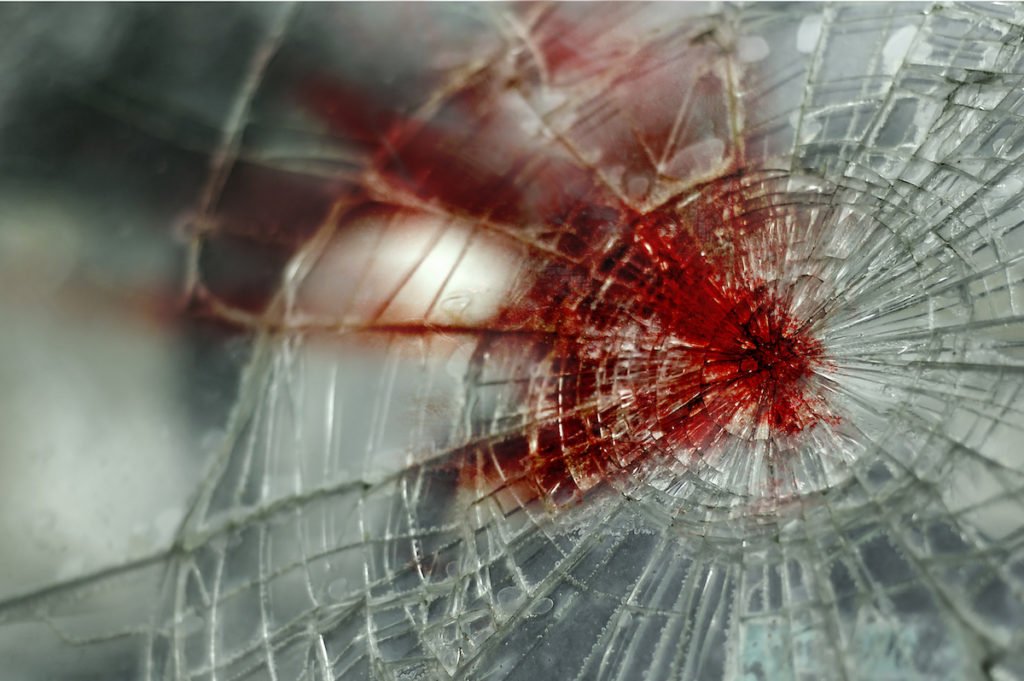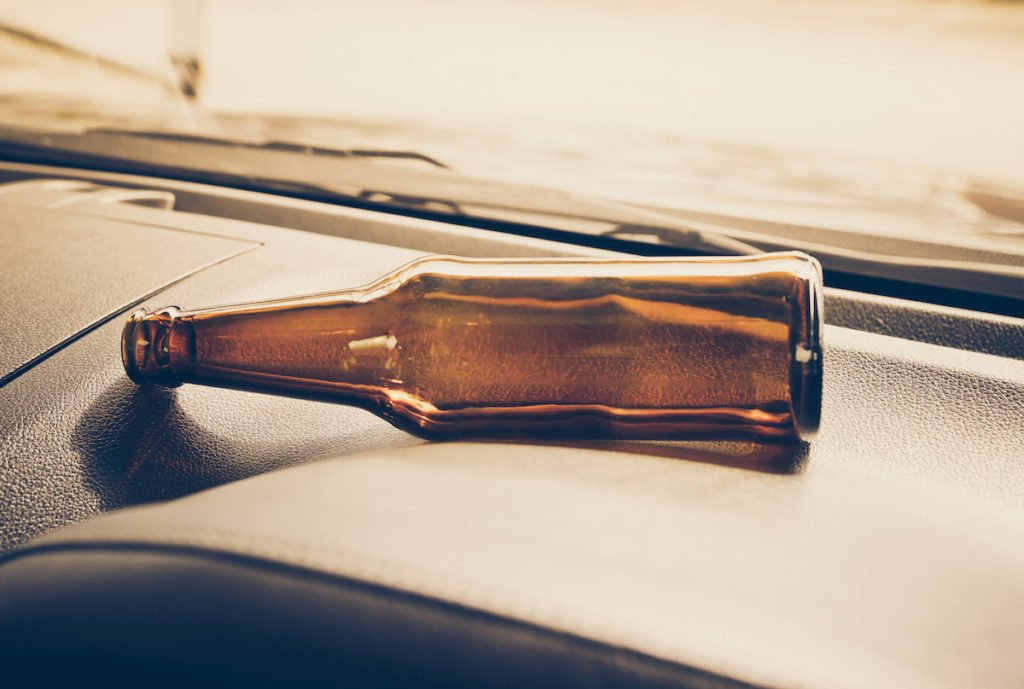In Nevada, it is a class B felony to drive under the influence of alcohol and/or drugs and, in so doing, cause another person to suffer substantial bodily injury or death. The penalties include:
- 2 to 20 years in state prison,
- fines ranging from $2,000 to $5,000, and
- a 3-year driver’s license suspension.
Nevada’s penalties for causing serious car accidents are much steeper whenever drugs or alcohol are involved, as the following table shows:
|
Vehicular Crimes Causing Injury or Death |
Nevada Penalties |
| Vehicular homicide (NRS 484C.130): Fatal DUI following three prior DUIs | Category A felony: 25 years or life in prison |
| DUI causing injury or death (NRS 484C.430): Causing a fatality or substantial bodily injury from drunk or drugged driving | Category B felony: 2 to 20 years in prison and $2,000 to $5,000 |
| Reckless driving causing injury or death (NRS 484B.653): Driving with willful or wanton disregard of the safety of persons or property (no alcohol or drugs) | Category B felony: 1 to 6 years in prison and $2,000 to $5,000 |
| Vehicular manslaughter (NRS 484B.657): Proximately causing another’s death by driving with “simple negligence” (no alcohol or drugs) | Misdemeanor: Up to 6 months in jail and/or $1,000 |
In this article, our Las Vegas DUI attorneys address the following topics re. DUI causing injury or death:
- 1. Elements
- 2. Penalties
- 3. Your License
- 4. Defenses
- 5. Plea Bargains
- 6. Immigration
- 7. Record Seals
- 8. Related Offenses
- 9. What To Do After a Crash
- Additional Reading
1. Elements
For you to be convicted of DUI causing injury or death in Nevada, prosecutors must prove beyond a reasonable doubt two elements. The first is that you were driving either:
- while under the influence of alcohol and/or drugs;
- with a prohibited amount of controlled substances in your blood; and/or
- with a blood alcohol concentration of alcohol (BAC) of 0.08% or higher within two hours of driving.1
(Note that the minimum illegal BAC is only .04% for commercial drivers and .02% for under-21 drivers.)
The second element is that your driving killed or caused substantial bodily harm to someone. Examples of injuries that qualify as substantial bodily harm are:
- fractures
- wounds needing stitches
- organ damage
- paralysis
- serious burns
- long-lasting contusions
- concussions
- loss of consciousness
- long-lasting cosmetic damage
- chronic pain2
Note that if you are being prosecuted for a fatal DUI, you may not also be prosecuted for murder.3

Killing someone or causing serious bodily injury while under the influence of drugs or alcohol is a felony in Nevada, even if it is a first offense.
2. Penalties
Causing a serious injury or fatality by drunk or drugged driving is a category B felony in Nevada. The punishment includes:
- 2 to 20 years in Nevada State Prison,
- a fine of $2,000 to $5,000,
- a 3-year license revocation, and
- 1 to 3 years of having an ignition interlock device as a condition of reinstating driving privileges.
If you were transporting a child under 15-years old at the time of the alleged violation, the court may consider it an aggravating factor when determining your sentence.
Note that the Nevada Department of Prisons will try to segregate you from violent offenders and to house you in minimum-security facilities.4
3. Your License
Felony DUI convictions in Nevada trigger a three-year license suspension that begins after you are released from prison. To get your license reinstated, you will need to install an ignition interlock device in your motor vehicle for up to three years.5
Note that automobiles involved in Nevada DUI cases are usually impounded. Read more about DUI impound laws.
4. Defenses
Here at Las Vegas Defense Group, we use a two-pronged attack when fighting DUI with injury/death charges.
First, we fight the allegation that you were driving under the influence. Second, we fight the allegation that the victim’s injury or death was your fault.
In our experience, five common defenses that have proven very effective with prosecutors, judges, and juries are:
- The police gave faulty field sobriety tests instructions or scored you inaccurately;
- The breath test or blood test was administered incorrectly or were defective;
- You suffered from a medical condition such as GERD which caused inaccurately high breathalyzer BAC results;
- You did not begin drinking until after you stopped driving; or
- The other driver or some outside force was at fault for the accident.
Common evidence we rely on includes:
- eyewitness testimony,
- eyewitness recordings from phones,
- law enforcement reports,
- surveillance video,
- GPS records,
- medical records, and/or
- accident reconstruction expert testimony.

A possible defense to NRS 484C.430 charges is that you were not the proximate cause of the injury or death.
5. Plea Bargains
If a DUI with injury or death charge cannot get dismissed, it still may be possible to get it reduced by showing either:
- You were not committing DUI, or
- There was no causation between your actions and the victim’s injuries or death.
If the prosecutor can prove DUI but cannot show causation, your felony DUI charge could then be reduced to just a misdemeanor DUI.6
Alternatively, if the prosecutor can prove causation but cannot show DUI, then your charge could be reduced to:
- reckless driving causing injury (if the victim was injured) or
- vehicular manslaughter (if the victim died).
6. Immigration
Even as a felony, DUI is generally not deportable unless it involves drugs.7 However, all non-citizens facing criminal charges should still retain an experienced attorney to try to get the matter dismissed or reduced to a lesser offense.
7. Record Seals
Felony DUI charges that get dismissed can be sealed right away in Nevada. However, a felony DUI conviction remains on your criminal record forever.8
8. Related Offenses
Vehicular Homicide
Vehicular homicide (NRS 484C.440) is committing a fatal DUI when you already have at least three prior DUI convictions. It is a category A felony carrying 25 years in prison or a life sentence.
Reckless Driving Causing Death
Reckless driving (NRS 484B.653) causing death is extremely careless and risky driving that results in another person being killed, and you were not under the influence of alcohol or drugs.
This is a category B felony with penalties of one to six years in prison and $2,000 to $5,000 in fines. The maximum prison term becomes 10 years if the incident:
- involved speeding at least 50 mph over the speed limit or
- took place in a pedestrian safety zone, school zone, or a school crossing zone.
Vehicular Manslaughter
Vehicular manslaughter (NRS 484B.657) is when your negligent driving results in another person being killed, and you were not under the influence of alcohol or drugs. It is only a misdemeanor with penalties of up to six months in jail and/or up to $1,000 in fines.
What To Do After a Crash
Five steps to take after a car accident include:
- Stay at the scene and phone 911.
- Do NOT admit fault.
- Exchange contact- and car information with the other involved drivers.
- Take photos of the scene, and take down the name and contract information of eyewitnesses.
- Contact an attorney.
Additional Resources
For statistics on vehicular deaths, refer to the following:
- Nevada Traffic Safety Crash Facts – Nevada Department of Public Safety.
- Fatality Analysis Reporting System (FARS) – Nevada Department of Public Safety.
- Car Crash Deaths and Rates – Compiled by the National Injury Council.
- State by State Fatality Facts – Provided by the Insurance Institute for Highway Safety.
- NHTSA Estimates for 2022 Show Roadway Fatalities Remain Flat After Two Years of Dramatic Increases – Compiled by the National Highway Traffic Safety Administration.
Legal References
- NRS 484C.430 (DUI causing injury or death is when the driver:“does any act or neglects any duty imposed by law while driving or in actual physical control of any vehicle on or off the highways of this State, if the act or neglect of duty proximately causes the death of, or substantial bodily harm to, another person[.]“)
- NRS 0.060.
- Leavell v. Eighth Judicial District Court, (2020) No. 79923 (September 14, 2020); David Ferrara, Nevada Supreme Court prohibits murder charges in fatal DUI cases, Las Vegas Review-Journal (September 14, 2020); NRS 200.030.
- NRS 484C.430; NRS 483.460.
- NRS 483.460.
- 484C.400. A first- or second-time DUI in a seven-year period is a misdemeanor, but a third-time DUI in seven years is always a felony even if there were no injuries.
- See Montiel-Barraza v. INS,(9th Cir., 2002) 275 F.3d 1178.
- NRS 179.245; NRS 179.255.

